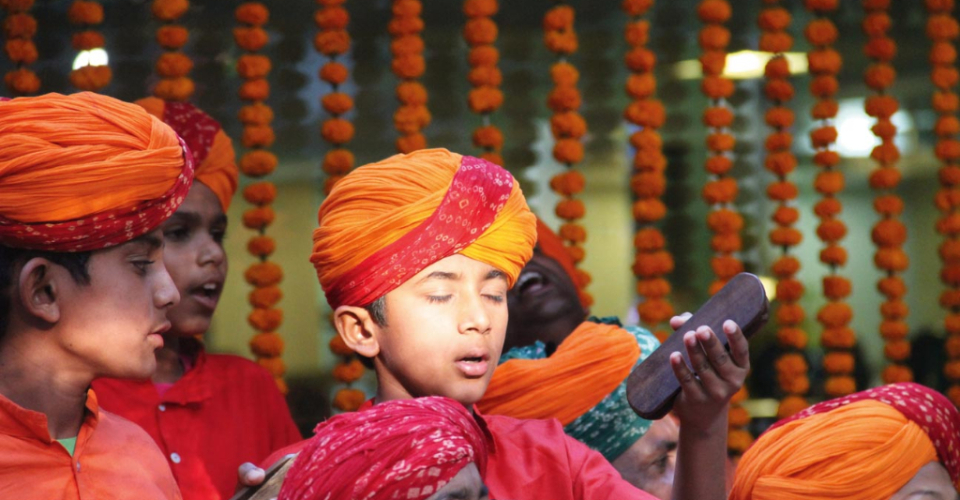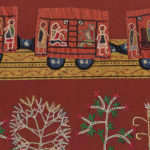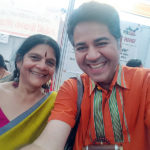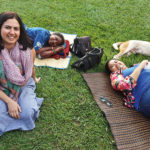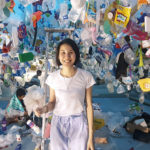Parmesh’s Viewfinder: Spring In Their Step
It was a month of being inspired by young change-makers from all across India. As I addressed two very different sets of Gen-Next students over the past few weeks, I was moved by their fearlessness, their refusal to accept the status quo and their fierce determination to create a better and more inclusive India for all of us. The future is in safe hands – it is the present that seems to be the problem!
The first group was a super enthusiastic bunch of young college students from across Mumbai that got together and organised the UN Changemakers Conference at Mumbai’s US Consulate premises. It was fun to speak alongside diverse folks like RBI governor Raghuram Rajan and actor Ranveer Singh. I was impressed by the complete and utter professionalism with which the students conducted the event. Young Trisha Shetty, one of the founders and event hosts, was poised and completely unfazed as the event script kept on changing, adapting to each swing with nonchalance that even a seasoned host might find difficult to muster. And a kurta-clad Samyak Chakrabarty, the other founder and host, channelised Arnab Goswami as he asked extremely challenging questions to the speakers on stage.
I was also delighted to address India’s first-ever Lesbian, Bisexual, Gay and Transgender Youth Leadership Summit. Young Udayan Dhar, an MBA student from the NM Institute of Management Studies, had put together this conference under the aegis of the Mission for Indian Gay and Lesbian Empowerment, or Mingle, in partnership with both international and national LGBT groups. The two-day event consisted of interactive workshops, documentary screening and panel discussions. More than a 100 young LGBT people between the ages 18 and 28 had applied to attend the summit, among which 35 were finally selected to attend, based on their leadership potential.
The participants were a diverse group from many Indian cities like Mumbai, Bengaluru, Delhi, Hyderabad, Chennai, Kolkata and Indore. Some were working in the corporate world, others were with non-profit organisations. Some were in academia, studying among other topics, the intersection of geriatrics and sexuality. There was even a participant who had flown in from New York, so that he could go back and serve as a bridge between the Indian LBGT youth here and the desi diaspora there. Confidence building, community building, mentorship and more – the summit was an intense and humbling experience for me personally. At the end of it, I felt that we, the older generation, had so much more to learn than these young leaders.
I was also delighted to host a wonderful group of Rajasthani folk musicians – the Merasi, at the Godrej India Culture Lab last month. The Merasi (which means musicians) don’t like the term Manganiyar (which means beggar) that is commonly used to describe folk artists from their region. We collaborated through the New York-based Folk Arts Rajasthan (FAR) and the Rajasthan-based Lok Kala Sagar Sansthan (LKSS) for our special performance in Mumbai. During their visit, I spent some time with Karen Lucas, the founder of FAR, and Sarwar Khan, the LKSS director, to learn more about their lives and their work.
Karen told me that on the one hand, the Merasi are thought of as an auspicious presence at Rajasthani births, weddings, funerals, and other major rites of passage. However, they are still considered social pollution outside of those contexts. Even today, many Merasi are born without birth certificates, denied access to education, political representation and adequate healthcare. She added that Merasi music is losing popular favour within Rajasthan and what this means is that, when older Merasi die, they take their 38-generation-old song systems with them without transferring them to the next generation, since the performance of traditional music is no longer an income generator. The result is that this rich cultural heritage is on the cusp of eradication.
Karen, Sarwar and their band of dedicated group members have decided to change this scenario. They have started performing extensively across India and the world to generate interest in their music. They have started a Merasi Musical Narrative Project as an ever-expanding archive of photo, audio, and video material documenting their endangered musical legacy. And they have started investing in their future generations.
Sarwar told me that the philosophy for the Merasi Gen-Next was, “One hand on the pen, one hand on the drum.” For this, they have together built a Merasi School for young children to learn – music as well as other kinds of knowledge. For older children, they have established a scholarship programme that can enroll them in private schools. This is important especially for young Merasi girls. During this Mumbai visit, I considered it to be my honour to meet Asha, a confident young 11th standard student, who is the first Jaisalmer Merasi girl to read, write, and speak English. Currently, she has been denied school application materials due to caste prejudice, but Asha is cheerfully battling all these odds and I have no doubt that she is going to overcome them.
Talking about overcoming the odds, this is essentially where the Blues music has emerged from – from difficult, black working class roots, and I am overjoyed that the Mahindra Blues Festival has now firmly established itself on Mumbai’s cultural calendar. This year’s edition sparkled, and left me red in the face with all the shouting, green with envy that we don’t have this all around the year…every colour except blue! What can I tell you about standing in the middle of Mehboob Studio’s Stage 3 listening to a Lil Ed solo guitar riff after a rather raunchy innuendo-filled set, except that you have to be there to feel the magic?
I was also really fortunate to have witnessed the excellent solo performance in the Scottish play HeLa by Adura Onashile. This was the story of a young black woman called Henrietta Lacks who walked into a hospital in Baltimore with a pain in her abdomen in 1951. A sample of her cancer cells, taken without permission, was used as raw material for some of the most important scientific discoveries of the past 100 years. Hats off to Quasar Thakore Padamsee and his committed QTP team, as well as to the British Council for bringing this play to India. HeLa’s subject matter was bleak – the rather shocking history of science around conducting experiments on poor people of colour – and the audience Q&A was all about how relevant the theme was in today’s India, where medical malpractice and organ theft are rampant. Despite the grim theme, Adura infused her performance with lightness, with humour, and with some divine dancing. As I walked out of Parel’s trippy Sitara Studio with Kabir Bedi and other friends, I couldn’t help but sway to the wedding band music that played nearby.
Related posts from Verve:
Verve Trending
Sorry. No data so far.
us on Facebook to stay updated with the latest trends

